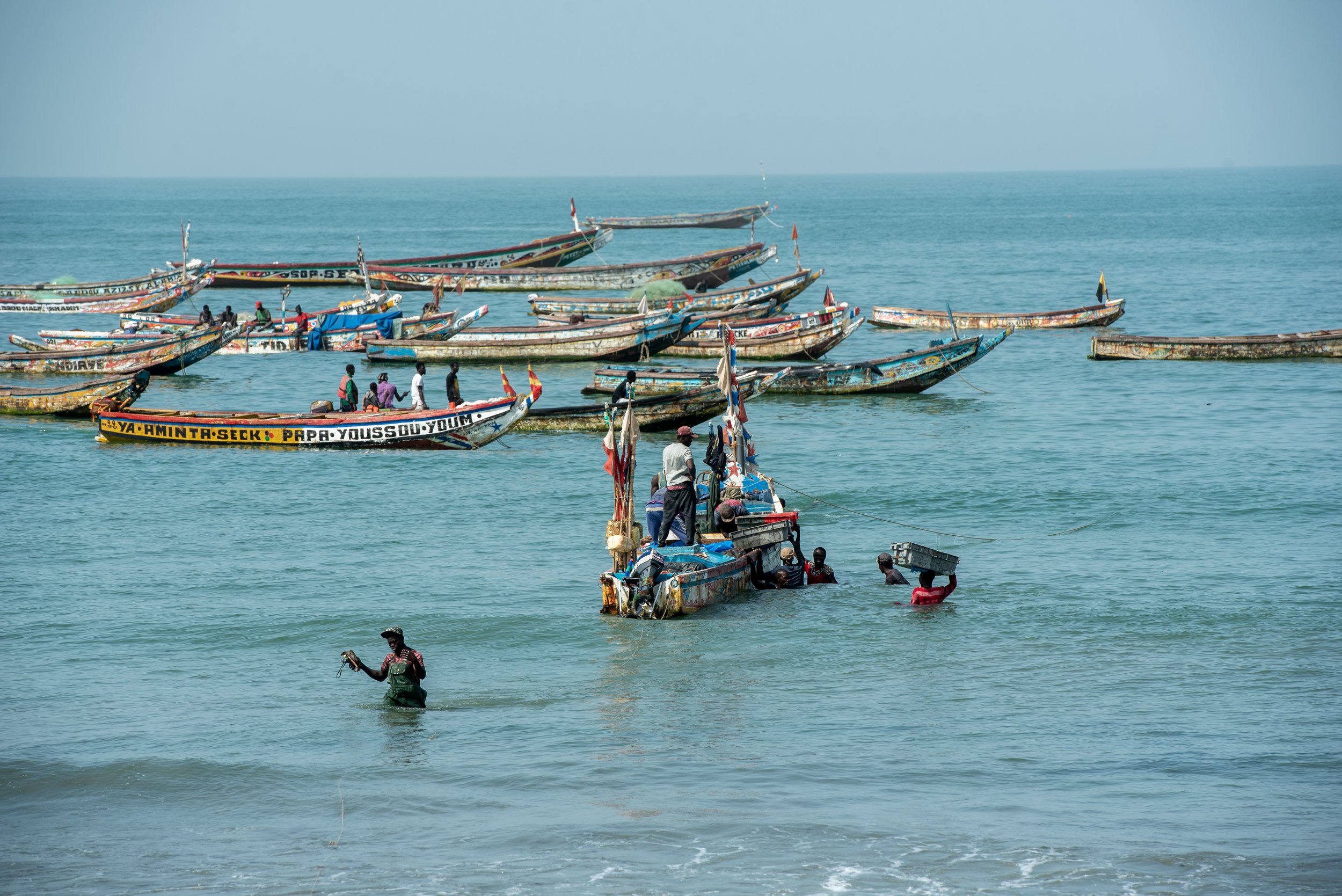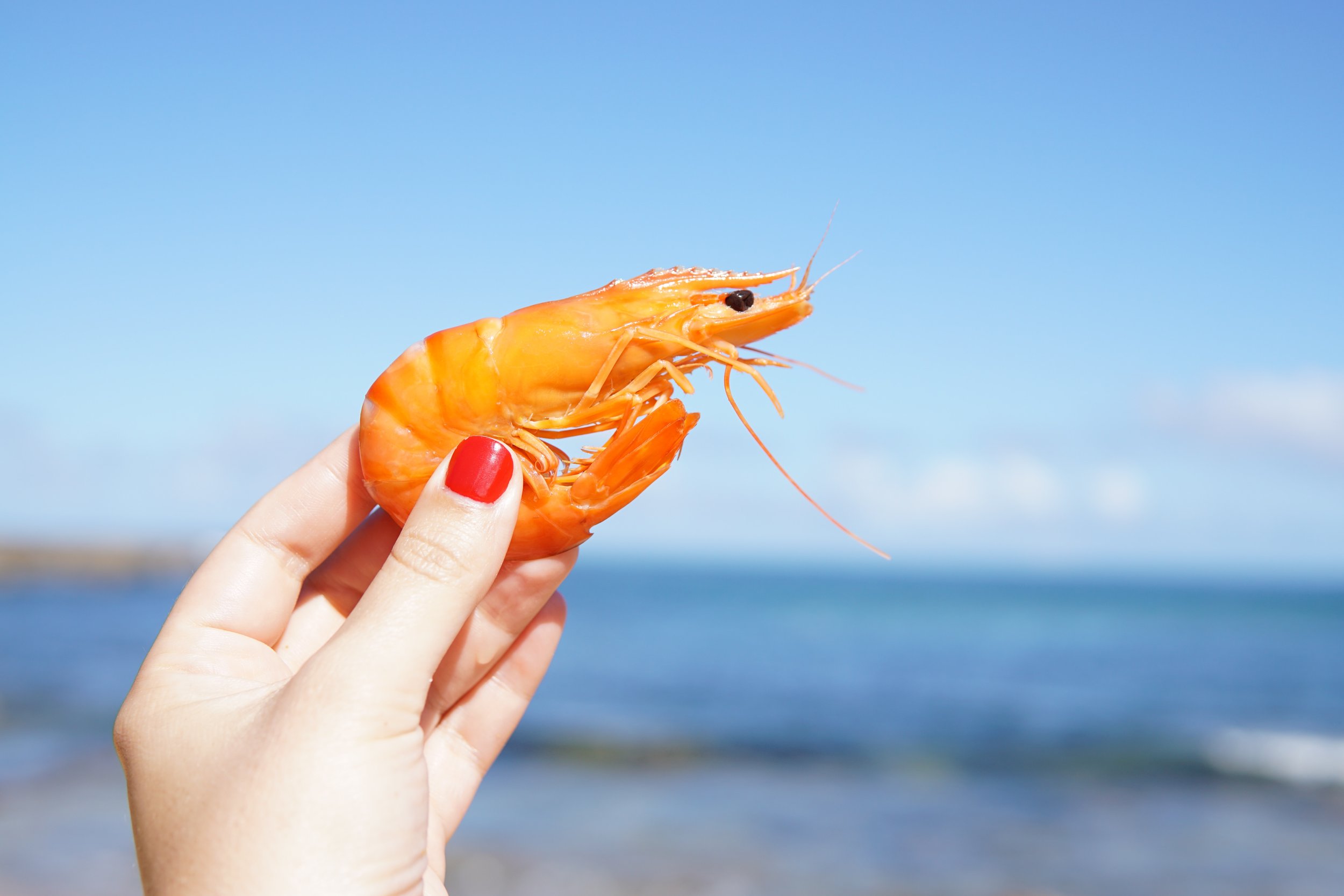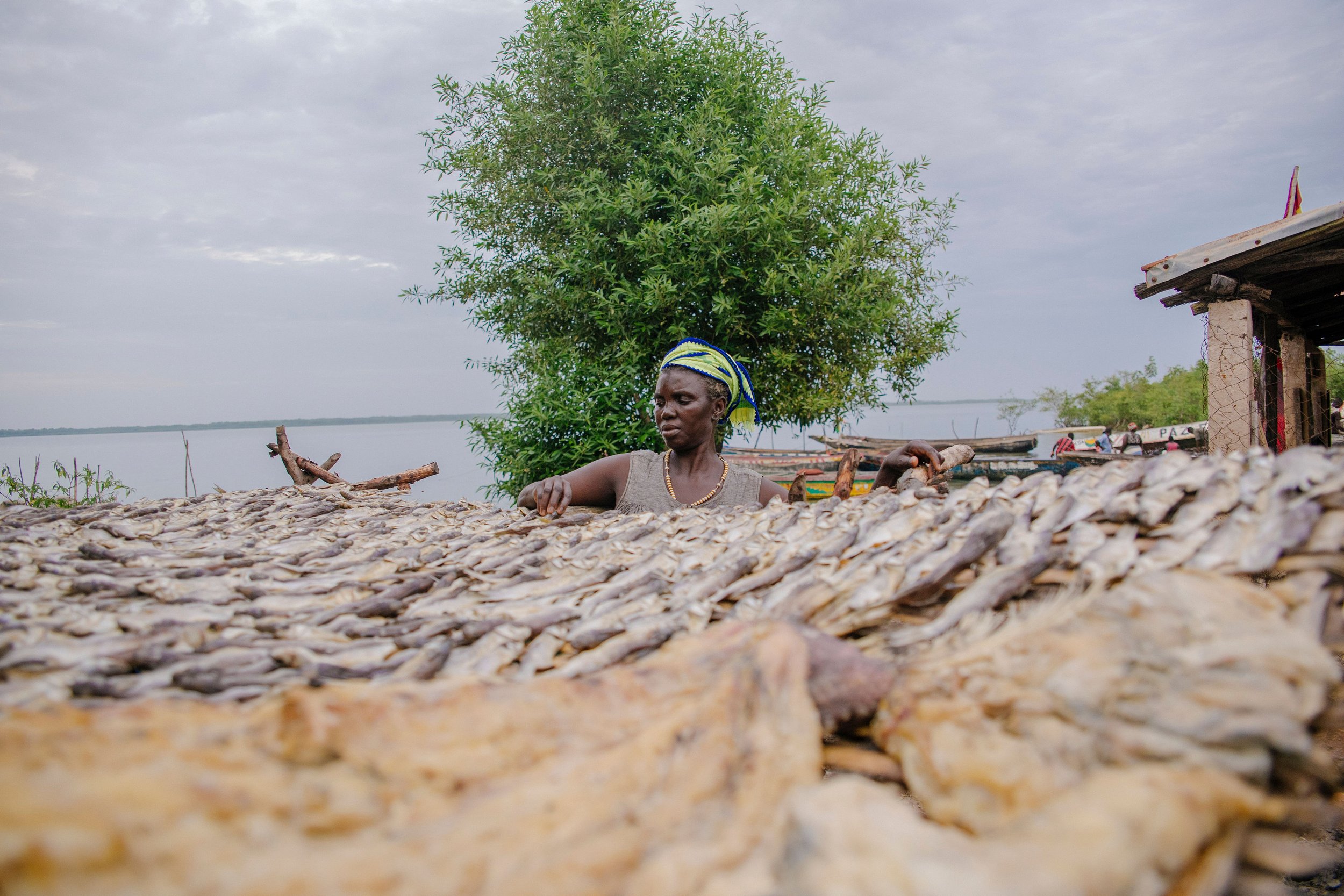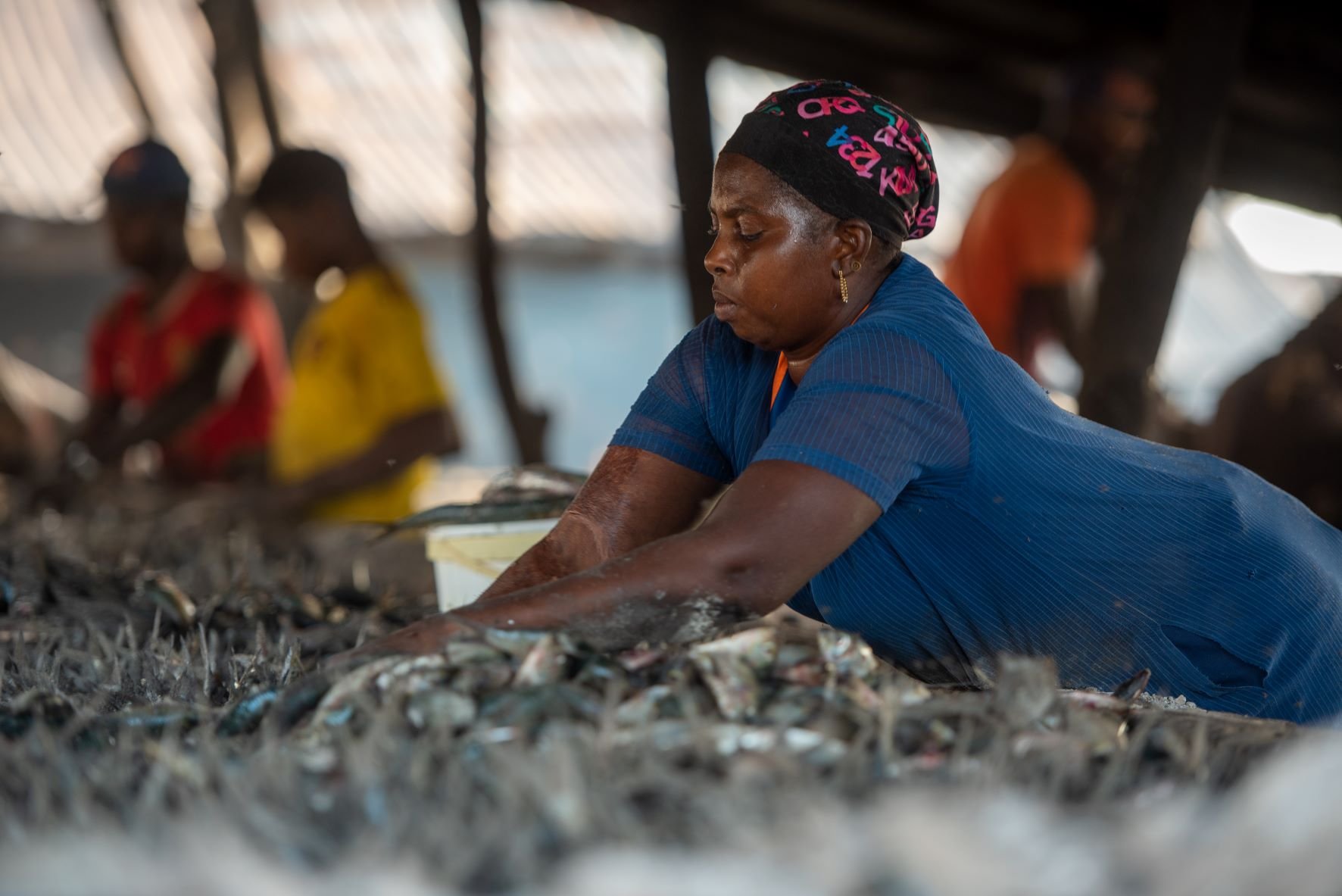As the European Commission launches a campaign to promote the consumption of EU aquaculture products, several NGOs warn of worrying developments in the aquaculture sector and recall that some forms of aquaculture are harmful and impact the livelihoods of small-scale fishing communities across the world.
Small-scale fishers should be at the centre of the European Oceans Pact
The EU should guarantee rights-based and equitable decision-making processes about ocean uses, ensuring the protection of the most vulnerable facing more powerful blue economy industries. Taking into account the role of artisanal fisheries in food security and poverty eradication in developing countries, the EU should also support SSF and sustainable fisheries management in its ocean partnership with African countries.
Liberian fishers are essential for food security: Investing in them must be the cornerstone of any EU-Liberia relation
SSF are threatened by competition from foreign industrial fleets, declining fisheries resources, and management measures that undermine its sustainable development. While EU-funded projects aim to address these issues by promoting sustainable fisheries governance, structural challenges, including inadequate enforcement of the Inshore Exclusion Zone (IEZ), remain.
EU-Mauritania SFPA – Joint Committee ahead: small pelagic fish goes under the spotlight
The Joint Committee of the EU-Mauritania SFPA will meet in Nouakchott from 4 to 6 December 2024. In this article, the author makes a number of recommendations in the light of the conclusions of the Fishery Committee for the Eastern Central Atlantic (CECAF). In its latest report, CECAF described the catastrophic situation of shared stocks of small pelagics and recommended a substantial and immediate reduction in fishing effort of 60% for flat and round sardinella.
EU-Guinea-Bissau SFPA: progress for the artisanal sector, but European-owned vessels slip through the net
Although the protocol does not allow European fleets to fish for small pelagics because they are overexploited, at least 4 European vessels have reportedly reflagged to Guinea-Bissau and are fishing for these species in the region, jeopardising the region's food security and competing with small-scale fisheries.
The Gambia-EU Sustainable Fisheries Partnership Agreement negotiations: Questions arising
With Senegal’s yellow card, fisheries agreement negotiations between the EU and Senegal are at a standstill. Meanwhile, the EU will negotiate the renewal of its SFPA with The Gambia, whose waters are bordered on both sides by Senegal’s. How would access to the Gambian waters be used by EU fleets, at a time when they may be barred from Senegal waters?
Norway is flooding the EU market with unsustainable fish products, like farmed salmon – This should stop
In this article, the author underscores the ecological and social impacts of Norwegian intensive salmon farming, including the impact on food security in West Africa. The author remarks that while on the one hand, the European Union promotes fish for human consumption in Africa, on the other, the EU also opens wide its market gates for Norwegian farmed salmon, which is fed West African fish.
The best way EU Sustainable Fisheries Partnership Agreements contribute to food security is by protecting and promoting artisanal fisheries
West Africa: The EU should promote human consumption over the production of fishmeal and fish oil
JOINT LETTER: 11 African artisanal fisheries organisations and development NGOs send a letter to Commissioners Virginius Sinkevicius and Jutta Urpilainen asking them to use the crucial voice of the EU through Sustainable Fisheries Partnership Agreements and the EU-Africa partnership to address the impending food crisis in the West African region linked to the fishmeal and fishoil production.
EU-Senegal fisheries partnership: transparency is essential at all levels
In a contribution sent to the European Commission, co-signed with 8 other civil society and environmental organisations, we highlight the most important points to be taken into account for the renewal of the protocol, to ensure that the fishing agreement has a positive impact for small-scale coastal fishing communities.
FAO Sub-Committee on Fish Trade: The role of women in fisheries must be better recognised
The EU must develop fisheries specific due diligence legislation
The Spanish presidency of the EU is seeking to finalise the negotiations for a corporate accountability directive before the end of December 2023, which would see European based companies take some degree of responsibility for what they do in third countries. We look at some key issues at stake for the third countries small scale fishers.
Transparency, protected and equitable access to resources: the stakes of the EU-Mauritius agreement for small-scale fisheries
The European Parliament is set to give its consent at the end of May to the new Sustainable Fisheries Partnership Agreement (SFPA) between the EU and Mauritius. This article outlines the challenges that Mauritian artisanal fisheries face and highlights the priorities for sectoral support in the future SFPA protocol to support this sector.
Intensive farming of carnivorous fish relying on West Africa fishmeal must be stopped
The FAO Guidelines for Sustainable Aquaculture can be improved by including the considerations of stakeholders that are currently facing the negative impacts of unsustainable aquaculture, and by openly addressing issues like the interactions with small scale fisheries, competing for coastal space and for access to resources like small pelagics in West Africa.
Despite what FAO says, access to marine resources and markets is not yet secured for small-scale fisheries
A recent report assessing the progress made on food and agriculture-related Sustainable Development Goals glosses over the fact that around the globe, men and women in the artisanal fisheries value chain still face incredible hurdles in seeing their access rights respected. IYAFA has catalysed recognition for small-scale fisheries important roles in food security and livelihoods, but now action on the ground and concrete results are needed.
Small-scale fishers call for global leaders to act now on oceans at UN Ocean Conference
JOINT PRESS RELEASE: Small-scale fisheries are small in name only. Half a billion people – 7% of the global population – are at least partly dependent on them for food, employment and income. They are the largest group of ocean users, have contributed the least to the ocean emergency, and are among the most affected by it. Yet their needs, roles and rights are often ignored, and they are generally sidelined or excluded from major policy discussions that directly affect their lives and livelihoods.
West Africa: PESCAO should be more effective and attentive to artisanal fisheries
The PESCAO programme for the improvement of fisheries governance in West Africa, financed by the EU from the 11th EDF Regional funds, started in June 2017 and will end in June 2024. After nearly 4 years, an evaluation is underway to assess the results obtained and to see how to improve its implementation, in a context where the countries of the ECOWAS region are focusing on the development of a blue economy strategy.
Making fish worth its weight in gold: granting better access to markets for women in African artisanal fisheries
EU-Mauritania SFPA: The requests of the Mauritanian artisanal fisheries and civil society
This week the European Parliament is discussing a first draft by rapporteur Izaskun Bilbao on the Sustainable Fisheries Partnership Agreement between the European Union and Mauritania. This agreement is of great interest to the EU fisheries sector and is the most expensive of all fisheries agreements between the EU and third countries.
Joint statement - European and African decision-makers should join forces to support sustainable artisanal fisheries in Africa
In view of the summit that will bring together the leaders of the European Union and the African Union in Brussels on 17th and 18th February 2022 and in the context of the International Year of Artisanal Fisheries and Aquaculture (IYAFA), six civil society and professional organisations call the EU and AU to take concrete action in three key areas. Click on the link to read more.





















